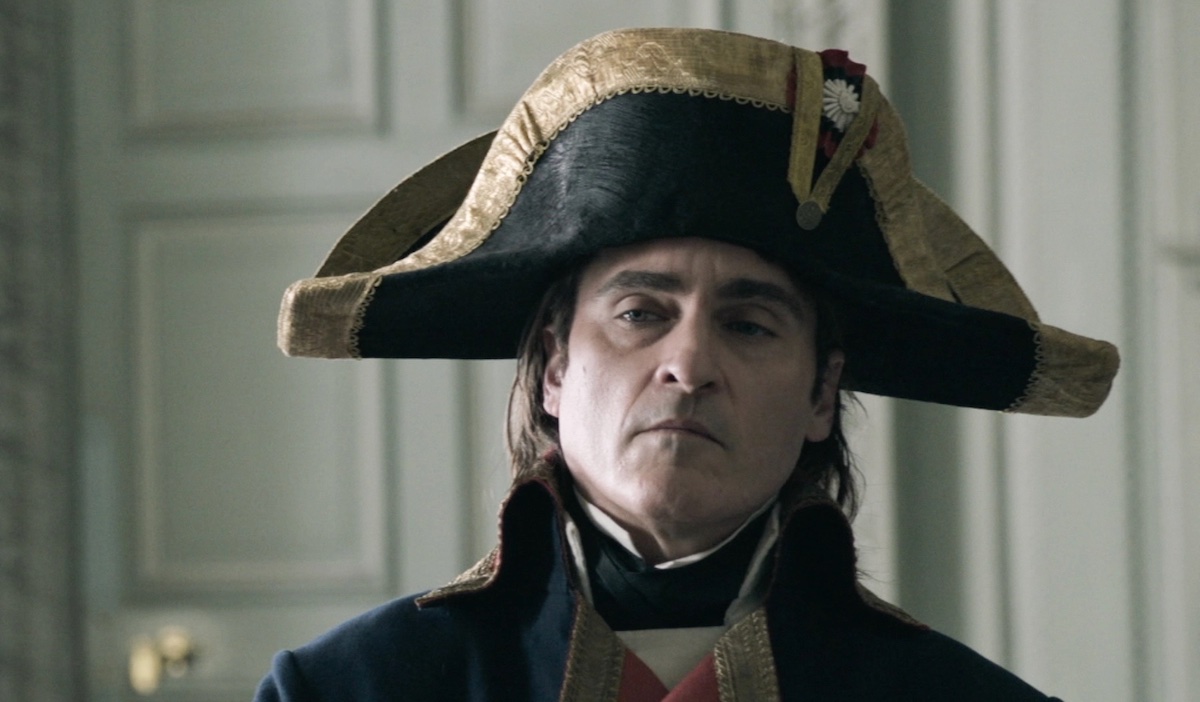‘Napoleon’ Takes a Strange and Breathless Look at History
3/5 bicorne hats

Napoleon, Ridley Scott’s new sweeping biopic of Napoleon Bonaparte, begins with a chaotic scene: the execution of Marie Antoinette, which a young Napoleon watches from within the crowd. The scene sets the tenor of the entire film, with its focus on revolutions succumbing to power vacuums, and a mercurial populace cheering on the exact kinds of dictators they previously ousted. Napoleon explores a voracious hunger for power, and the ruin that hunger leaves in its wake.
Napoleon centers on the titular character (Joaquin Phoenix) as he rises from an ambitious young soldier to a general, eventually crowning himself Emperor of the French before his eventual exile. During Napoleon’s rise and fall, he falls in love with Joséphine de Beauharnais (Vanessa Kirby), and the film focuses on their tumultuous romance and marriage.
It’s one thing to get the sets and costumes right in a historical film like this one. It’s quite another to create a believable, immersive world. From epic military campaigns to intimate, character-driven moments, Napoleon captures the tremendous upheaval of 18th-century France—and the rest of Europe—giving the audience a look at the bloodshed that helped steer the course of world history.
The world Scott creates makes the film’s inevitable battles feel all the more compelling. The film boasts colossal sequences with warships, cavalries, and lots of gore, but the scenes aren’t just blood for its own sake. As we watch Napoleon carry out both his successful campaigns and his humiliating failures, we get glimpses into the strategy and tactics of 18th-century warfare. Infantries scurry into esoteric formations to fend off mounted troops. Soldiers sneak onto enemy ground with explosives. In one heart-stopping scene, Napoleon lures Russian troops onto a frozen lake, a devastating trap that becomes clear the moment the cannons start firing.
At the center of the whirlwind is, of course, Phoenix as Napoleon himself, who displays a fascinating combination of steely-eyed resolve and comical petulance. Born in Corsica, Napoleon is a perpetual outsider in the French court, and we see that duality play out throughout the film. Every word he says is carefully chosen, until he inevitably loses his temper and blurts out what he’s really thinking. No amount of self-aggrandizement can hide his fundamental ridiculousness. There’s a bizarre streak to Napoleon’s character, although it leaves you wondering how much is historical fact versus caricature or artistic license. Tellingly, the film tallies the number of lives lost thanks to Napoleon’s ego, and thanks to Phoenix’s eccentric and explosive performance, you believe it.
Meanwhile, Joséphine struggles under the weight of her husband’s insecurity as she tries to hide her infidelity and produce an heir to the throne. The film doesn’t give her much to do, sadly, but Kirby plays the role with as much quiet pathos as she can.
Napoleon does suffer from some significant pacing problems. The issue is understandable, given the breadth and sheer weirdness of Napoleon’s exploits, but it’s also unfortunate. The film skips hurriedly from decade to decade, marking time with battles and scandal, and it’s hard to feel the emotional weight of any given moment.
But maybe that breathless pace is fitting for a story like this one. Napoleon isn’t just the story of one notorious man. It’s about the countless people he dragged in his wake, and the deeper chaos that allowed him to rise to power. It’s about an era, all too similar to our own, in which Western Civilization stutters toward liberation—but embraces fragile, outsized egos instead.
Napoleon comes out in theaters on November 22, 2023.
(featured image: Sony Pictures Entertainment)
Have a tip we should know? [email protected]
